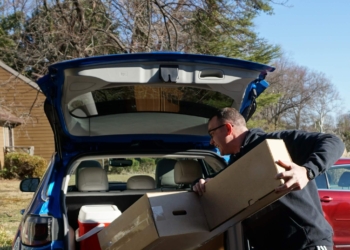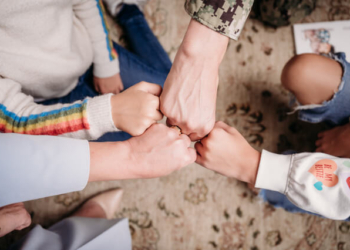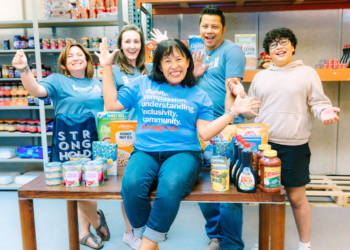Military families are in the unique position to find teachable moments everywhere. From exploring diverse landscapes of military duty stations to adopting environmentally-conscious practices with every PCS, the options are endless. A conversation with my military kid ahead of this year’s Earth Day helped me reflect about some of the ways we can honor our planet.
The other day my daughter asked me if we celebrate Earth Day as a family after hearing about it in her homeschool co-op science class. As someone who tries to commit her household to sustainable practices, I was a bit taken aback that she didn’t have any memories of this day. As a mom, there are many ways to teach my children about environmental resources and sustainability, but as a military family we can also commit for the upcoming PCS season and beyond.
Here are 10 ways to teach military kids about the planet this Earth Day:
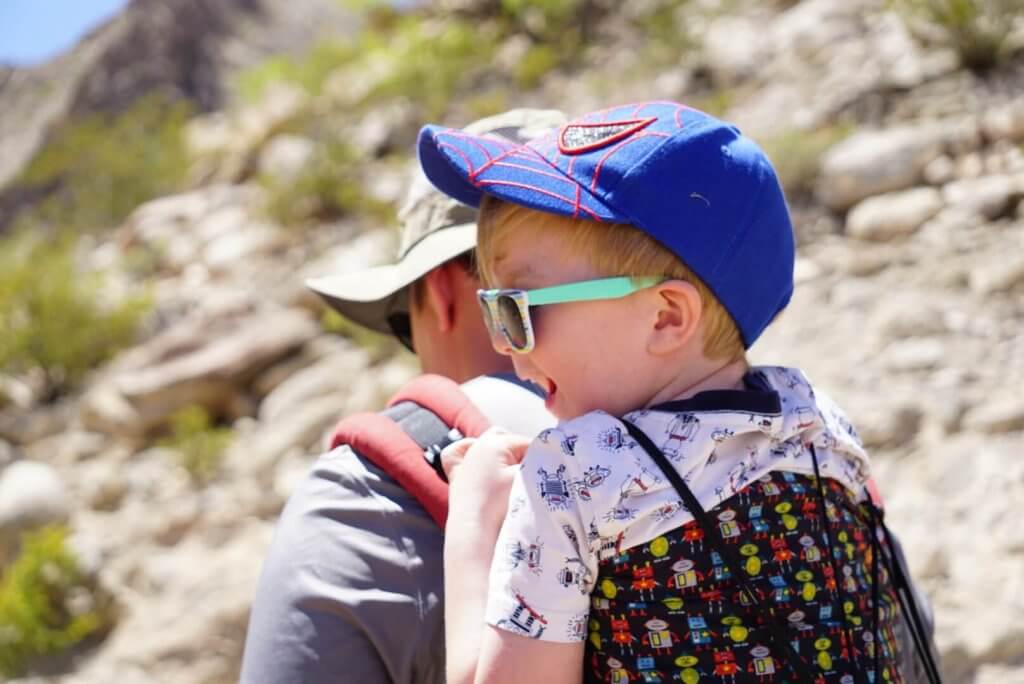
1. Make a plan for what you can’t move when relocating.
The night before a move, many military families toss cleaning supplies, condiments, and more that cannot be moved. Instead, check in with a friend or local charity that is willing to take open bottles to save some money. During one PCS, I was able to give all our condiments and detergents to a friend who was a single parent and appreciated the chance to save on her grocery budget. It also gave me a chance to spend a last few precious moments with her! Create a family list this Earth Day of ways you can pack with less waste.
2. Celebrate the holiday with a community event.
This year Earth Day falls on a four-day weekend for many soldiers, so take advantage of the time off to celebrate with your community. For example, the Navy MWR in Bethesda, Maryland, planned an Earth Day 5k and the aquarium near Fort Jackson, South Carolina, is holding a Party for the Planet.

3. Start gardening.
There are many benefits to gardening and composting, including the financial perks to growing your own produce, the emotional benefits of being outside and helping to reduce food waste. However, moving around frequently to rentals in different climates can make gardening seem like an overwhelming task. Find a local master’s gardening group that offers tips on what grows best in your climate or provides access to seeds and educational events.
TIP: A plot in a local community garden, like the one at Fort Riley, can be a way to participate in gardening on community grounds, and provides social opportunities as well.
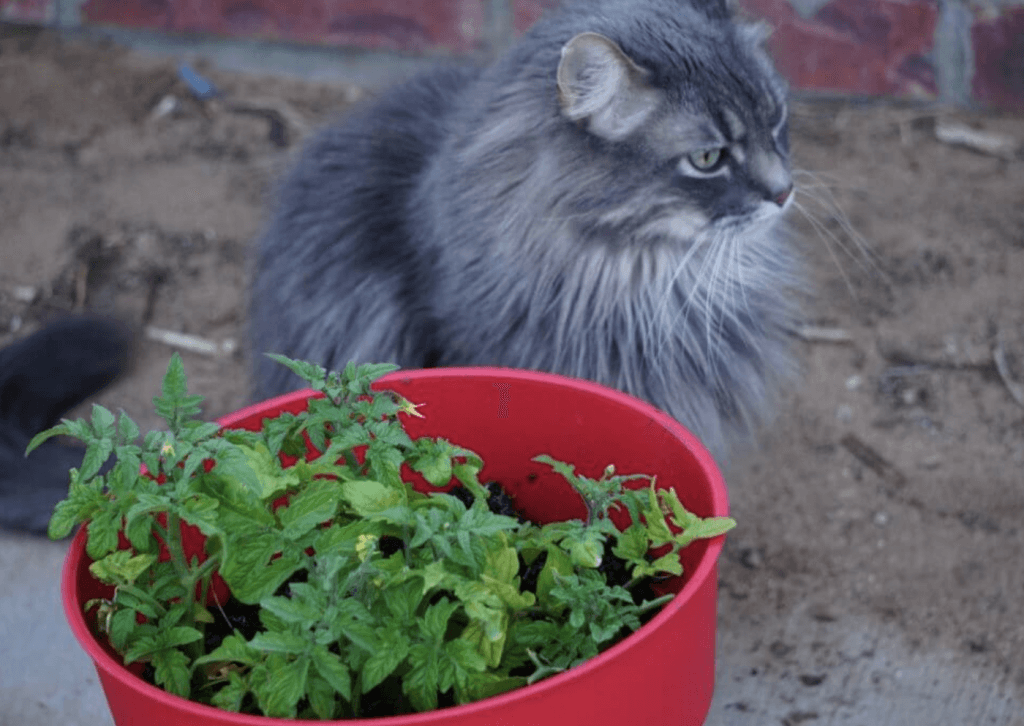
4. Turn recyclables into art (and art into recyclables).
The average person produces over 4 lbs. of trash per day, according to the EPA. Because only a small portion of solid waste is composted or recycled, we need to focus on reducing the amount of waste made. Teach your children about the need for waste reduction by starting with art projects.

See if your child’s school participates in an art supply recycling program, or volunteer to get one started, like the Colorcycle program from Crayola. Consider ways you can turn waste into art as well. Save small crayon pieces to melt down into new crayons, or keep a bag of paper, felt, bottle caps, and tissue paper waste to later turn into collages.
5. Choose sustainable luggage.
Military families travel frequently, which means we go through more luggage than the average household. Consider purchasing an eco-friendly brand made from sustainable materials. Invest in a wheeled duffel made for adventure by Patagonia, enjoy colorful prints in handbags and suitcases made from recycled bottles by Lily Bloom or invest in the sustainable luggage line from one of the most well-known names in luggage, Samsonite.
6. Create a “no car challenge” for the day.
Does your family live on post or in a neighborhood where you can walk to the library, school or store? If so, consider creating a no car challenge for a set time limit to see how many places you can challenge yourself to walk to and save on gas. Alternatively, challenge your family to use only one car for the week – can you work to make sure everyone is where they need to be with one car, biking or walking? Decide on a family reward, like a walk to a local ice cream store to reward yourselves if you succeed and use it as an opportunity to think about your family’s use of fossil fuels.
7. Research military efforts to fight climate change.
Each branch of the military has an office dedicated to sustainability and resource conservation, and may offer learning opportunities for both soldiers and families. For instance, the U.S. Army Environmental Command offers Earth Day posters, coloring books, and activities for download.
8. Plan an FRG event focused on ecology.
Do you participate in an FRG leadership team or other social organization? Plan an event focused on sustainability, like a yard sale for fundraising, or a clothing or houseware item swap can help members spring clean without waste. Your group can volunteer to clean up litter on a local trail or take a field trip to a local zoo, science museum or park.
TIP: Military families can visit national parks for free with a military ID card.

9. Watch a documentary for your next family movie night.
Global Web Index reports on what is called the David Attenborough Effect, which states millennials who grew up watching documentaries narrated by the great naturalist are buying less plastic and more willing to spend money on sustainable products. So, make a bunch of homemade snacks and settle in to watch his newest movie on Netflix.
10. Celebrate without no litter.
Unfortunately, many celebrations generate a lot of litter in our local outdoor areas, such as plastic grass from Easter baskets, balloons sent into the sky as a memorial, and trash from large picnics. If you are hosting a get together this season, choose one area where you can lessen waste.
- Purchase low cost reusable cups and tableware to store in a closet until the next gathering rather than single use plastics,
- Light candles, blow homemade bubbles or write letters to burn in a bonfire instead of releasing balloons or lanterns,
- Choose earth friendly fillings for children’s party favors.
















